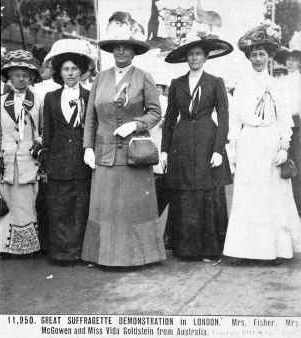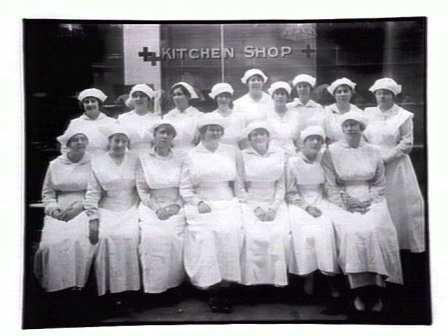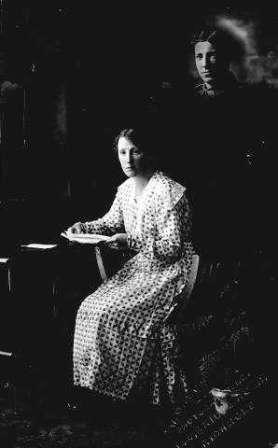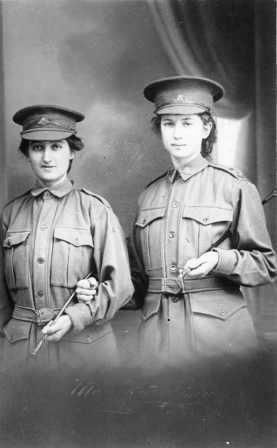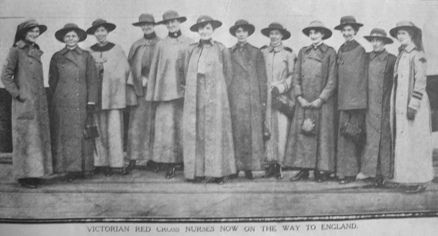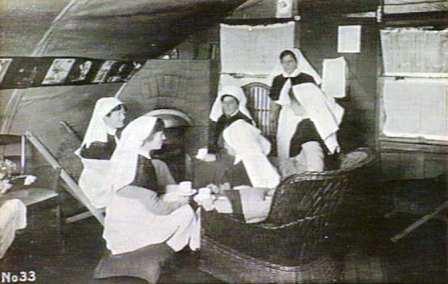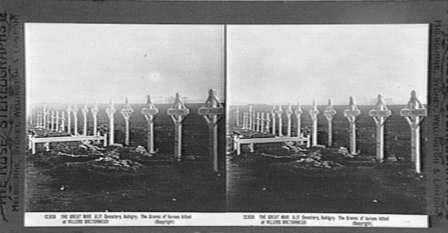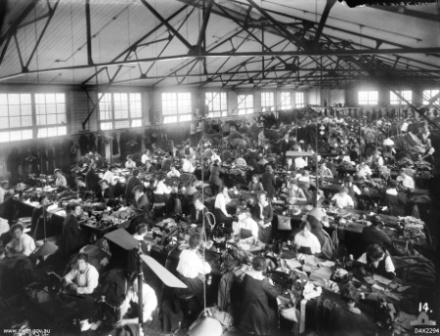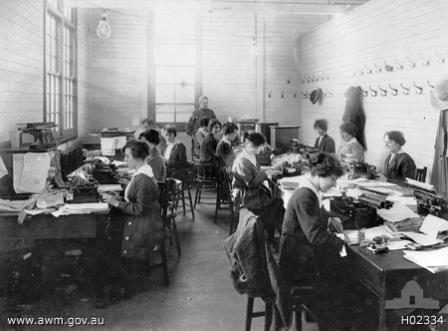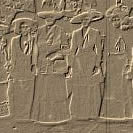 |
WOMEN WORKING TOGETHER |
THIS SITE CONTAINS
1 to 5 - Winning the vote
Chapter 1: The Vote or Bust 1788-1908
Chapter 2: Who Were the Suffragists?Chapter 3: 'United and Representative Agitation'
Chapter 4: Anti-Suffragists 1900-1910Chapter 5: Onwards to Success 1884-1908
6 to 10 - Social Justice and peace
Chapter 6: Moving into the Public World
Chapter 7: 1914-18 War - Pro Peace, Pro and Anti War
Chapter 8: Women's Work in WW1
Chapter 9: 1919-1935 - Surviving
Chapter 10: 1935-1945 Still Surviving
11 to 15 - Finding our voice as women
Chapter 11: 1945 and after - In Our Own Right
Chapter 12: 1970's Protesting - Working Together Again
Chapter 13: Finding Our Voice - Women's Liberation
Chapter 14: Working Collectively
Chapter 15: The 1970's & 80's Broader Women's Movement
16 to 20 - Our legacy our strength our struggle
Chapter 16: In Our Own Hands - Our Bodies
Chapter 17: Whose Right to Choose?- Our Selves
Chapter 18: Environment Matters
Chapter 19: 1990's When the Women's Movement is Quiet
Chapter 20: What a Legacy We Inherit!
Appendix 1: Papers and Interviews
Appendix 2: Songs from the Women's Movement
WOMEN FROM THE
WOMEN'S MOVEMENT
MENTIONED IN THIS WORK.
Abigail Adams
Ada Brougham
Adela Pankhurst
Adrian Howe
Agnes Murphy
Aileen Goldstein
Ailsa O'Connor
Alayne Park
Alex Butler
Alice B Toklas
Alice Henry
Alice Moon
Alice Suter
Alice Walker
Alice Weekes
Alina Holgate
Alisa Burns
Alison Alexander
Alison Dickie
Alison Richards
Alix McDonald
Alma Morton
Alma Thorpe
Andrea Coote
Annie McKenzie
Alva Geike
Amanda Bede
Amanda Biles
Amanda Graham
Amelia Ceranas
Amelia Lambrick
Amira Ingliss
Amy Castilla
Angelina Austin
Angelina Wonga
Ann Jackson
Anna Brennan
Anna Howie
Anna Morgan
Anna Pha
Anna Shaw
Anna Stewart
Anne Barker
Anne Carson
Anne Conlon
Anne Gowers
Anne Phelan
Anne Riseborough
Anne Stewart
Anne Summers
Annette Bear-Crawford
Annie Lister
Annie Lowe
Annie McKenzie
Anthea Hyslop
Antonie Stolle
Ariel Couchman
Audrey Oldfield
Barb Friday
Barbara Creed
Barbara Hall
Barbara Jones
Barbara Kerr
Barbara Marsh
Barbara Van Meurs
Barbara Wishart
Beatrice Faust
Bella Lavender
Belle McKenzie
Bertha Main
Beryl Carter
Bessie Harrison-Lee
Bessie Rainer Parkes
Bessie Rischbieth
Bette Olle
Betty Richmond
Bev Kingston
Bon Hull
Brettena Smyth
Brienne Callahan
Brigid McCaughey
Bronwyn Pike
Candy Broad
Carmel Shute
Carmen Callil
Carmen Lawrence
Carole Ford
Carole Wilson
Caroline Huidobro
Caroline Landale
Carolyn Allport
Carolyn Jay
Carolyn Worth
Carrie Chapman Catt
Carrie Reed
Caryl Friedman
Cath Mayes
Cath Stone
Catherine Anne Spence
Catherine Blackburn
Catherine McLennan
Cecilia John
Charlotte P Gilman (Stetson)
Cheris Kramarae
Cheryl Griffin
Chris Cathie
Chris Chapman
Chris Sitka
Chris Zsizsman
Christina Frankland
Christina Stead
Christine Haag
Churls Kramarae
Claire Berry
Clara Weekes
Clare Wright
Claudia Wright
Colleen Hartland
Constance Stone
Cynthis Carson
Dale Dowse
Dale Spender
Daphne Gollan
Deb Schnookal
Deborah Jordan
Deborah Wardley
Di Fruin
Di Otto
Di Surgey
Diane Crunden
Diane Kirby
Diane Sonnenberg
Dianne Edwards
Dianne Scott
Dianne Wells
Dimity Reed
Divna Devic
Dominica Whelan
Dora Coates
Doris Blackburn
Doris Challis
Doris McRae
Dorothy Turner
Dr Adrian Howe
Dr Aletta Jacobs
Dr Clara Stone
Dr Clare Isbister
Dr Constance Stone
Dr Helene Stocker
Dr Georgina Sweet
Dr Gwen Fong
Dr Janet Bacon
Dr Jocelynne Scutt
Dr Lyn McKenzie
Dr Marie Stopes
Dr Mary Glowrey
Dr Mary Stone
Dr Tamara McKean
Duggie Silins
Edie Turnevich
Edith Hedger
Edith Morgan
Edith Taylor
Edna Ryan
Eileen Capocchi
Eileen Kampukuta Brown
Eileen Unkari Crombie
Eleanor Dark
Eleanor Harding
Eleanor Hobbs
Eleanor M Moore
Elizabeth Cady Stanton
Elizabeth Coady
Elizabeth Hooke
Elizabeth Jackson
Elizabeth Ramsay-Laye
Elizabeth Reid
Elizabeth Rennick
Elizabeth Wallace
Elizabeth Wheelahan
Elizabeth Windshuttle
Ellen Julia Gould
Ellen Kleimaker
Ellen Ward
Elphinstone Dick
E McAllister
Emily Dobson
Emily Greene Balch
Emily Munyungka Austin
Emily Pankhurst
Emmaline Pankhurst
Emmy Evald
Ethel Barringer
Eugenie Davidson
Eva Eden
Eva Cox
Eva Figes
Eve Fesl
Eve Gray
Evelyn Gough
Evelyn Greig
Farley Kelly
Fiona Colin
Fiona Moorhead
Fleur Finney
Flo Kennedy
Flora Eldershaw
Florence Kelly
Frances Fraser
Frances Kissling
Fraulein Von Heymann
Freda Durham
Freda Gamble
Freda Steinberg
Frida Kahlo
Florence Miller
Gay Harris
Gayle Tierney
Gaylene Sneadon
Geraldine Briggs
Geraldine Robertson
Georgina McEnroe
Germaine Greer
Gertrude Bussey
Gertrude Stein
Gill Alecto
Gillian Waite
Gina Lewis
Gisela Kaplan
Glen Tomasetti
Greta Pearce
Gudren Drewsen
Gwendolen Swinburne
Harriet Taylor Mill
Hazel Donelly
Heather Jeffcoat
Heather Osland
Helen Anderson
Helen Caldicott
Helen Dow
Helen Durham
Helen Palmer
Helen Reddy
Helen Robertson
Helen Shardey
Helen Sexton
Hellen Cooke
Henrietta Dugdale
Henry Handel Richardson
Hetty Gilbert
Ilka Elkemann
Ina Higgins
Irina Dunn
Isabel McCorkindale
Isabella Goldstein
Isabella Martinis
Ivy Makinta Stewart
Jaala Pulford
Jacinta Allen
Jackie Fristacky
Jacqui Katona
Jan Armstrong Cohn
Jan Bassett
Jan Harper
Jan Mercer
Jan Testro
Jane Addams
Jane Alley
Jane Greig
Jane Mullett
Janet Bacon
Janet Bell
Janet Elefmiotis
Janet Lindsay Greig
Janet McCalman
Janet Michie
Janet Strong
Janey Stone
Janice Brownfoot
Janice Munt
Janine Bourke
Janne Reed
Jean Bedford
Jean Daley
Jean Henry
Jean McLean
Jean Melzer
Jean Sims
Jean Taylor
Jean Thompson
Jeanette Fenelon
Jeanette Powell
Jeanette Rankin
Jeni Thornley
Jennifer Clark
Jennifer Feeney
Jennifer Lee
Jennie Baines
Jenny Bacon
Jenny Barwell
Jenny Lee
Jenny Mikakos
Jenny Rimmer
Jenny Tatchell
Jesse Marlow
Jessie Ferguson
Jessie Henderson
Jessie Mcleod
Jessie Street
Jenny Pausaker
Jessie Street
Jessie Taylor
Jill Jolliffe
Jill Parkes
Jill Reichstein
Jill Roe
Jo Ellis
Jo MacLaine-Cross
Jo Phillips
Jo Wainer
Joan Coxsedge
Joan Curlewis
Joan E Basquil
Joan Goodwin
Joan Elkington
Joan King
Joan Kirner
Joan Rosanove
Joan Rowlands
Joanna Rea
Joanne Duncan
Jocelyne Clarke
Joe Dolce
Josephine Butler
Josie Lee
Joy Damousi
Joyce Barry
Joyce Johnson
Joyce Nicholson
Joyce Stevens
Jude Perera
Judi Willis
Judith Smart
Judy Cassar
Judy Morton
Judy Power
Judy Maddigan
Judy Small
Julia Church
Julia So So
Julianne Fogarty
Julie McCrossin
Julie Shiels
Juliette Mitchell
Kamla Bhasin
Karen Bird
Karen Gillespie
Karen Milgram
Karen Overington
Karen Silkwood
Karina Veal
Kate Darian-Smith
Kate Gilmore
Kate Jennings
Kate Miller
Kath Williams
Katherine Mansfield
Katherine Suzannah Prichard
Kathie Gleeson
Kathie Sarachild
Kathleen Fitzpatrick
Kathleen Maltzahn
Kathryn Sutherland
Kathy Gill
Kathy Wilson
Katrina Veal
Kay Daniels
Kaye Darveniza
Kay Hamilton
Kay Hargreaves
Kay Setches
Kaz Cooke
Keitha Carter
Kerry Blundell
Kerryn & Jenny
Kris Wilkinson
Lady Helen Munro-Ferguson
Lariane Fonseca
Laura Daniele
Laura Van Nooten
Laurie Bebbington
Lena McEwan
Lesbia Harford
Lesley Hewitt
Lesley Podesta
Lesley Stern
Lesley Vick
Leslie Cannold
Leslie Henderson
Lexie Methereall
Libby Brook
Libby Minifie
Lilian Alexander
Lilian Wald
Lily D'Ambrosia
Linda Aarchen
Linda Rubenstein
Linn Van Hek
Lisa Neville
Lisa Shuckroon
Liz Beattie
Liz Byrski
Liz Dowling
Liz Taylor
Lois Bryson
Lois Young
Lorri Manning
Louisa Lawson
Louisa Remedios
Louise Asher
Louise Walford
Lorna Scarles
Lucy Kowing Wilton
Lucy Paling
Lydia Becker
Lyla Barnard
Lyn Chambers
Lyn Hovey
Lyn McKenzie
Lynne Kosky
Mabel Drummond
Mandy Paul
Maree Gladwin
Margaret Bevege
Margaret Baskerville
Margaret Geddes
Margaret James
Margaret Mead
Margaret McKenzie
Margaret McLean
Margaret Roadknight
Margaret Thorp
Margaret Tims
Margaret Tucker
Margot Oliver
Maree Gould
Maria Mies
Marian Sawer
Marian Simms
Marian Vickers
Marie Kirk
Marie McInnes
Marie Rowan
Marion Harper
Marilyn Beaumont
Marilyn Hillgrave
Marilyn Lake
Marsha Thomson
Marylin Waring
Marilyn Wise
Marj Oke
Marjorie Barnard
Marjorie Barrett
Marjorie Waters
Mary Astell
Mary Bartlett
Mary Brodney
Mary Crooks
Mary Fullerton
Mary Gilbert
Mary Grant
Mary Killury
Mary Leigh
Mary Merkenich
Mary Murnane
Mary Owen
Mary Page Stone
Mary Rogers
Mary Salce
Mary Wolstonecraft
Mary Wooldridge
Matron Brown
Maxine Morand
May Brodney
May Langbridge
May Scheidt
May Smith
Megan McMurchy
Melanie Hall
Melinda Freyer
Melvina Ingram
Meredith Tax
Mesdames: Wallace; Baines;
Lavender; Webb; Singleton;
Morris; Gardiner; Reynolds,
Reid.
Mesdames Savage and Bella Lavender
Miles Franklin
Millicent Garrett Fawcett
Miss A Hume
Miss Anderson
Miss C H Thomson
Miss Cuthbertson
Miss D McRae
Miss E Goldstein
Miss E Hedger
Miss Effie Smart
Miss E Nesbit
Miss Geraldine Rede
Miss H Bridger
Miss H McGowan
Miss Harriet Newcomb
Miss Hilda Moody
Miss Jane Adams
Miss Janet Michie
Miss Jeanette Rankin
Miss Judd
Miss L Savage
Miss Lawler
Miss Lillian Locke
Miss Lillian Wald
Miss Mary Fullerton
Miss Miriam Geach
Miss Olive Gray
Miss R Smethurst
Miss Rapier
Miss Selina Cooper
Miss Simmons
Miss Wollen
Miss Stoddart
Miss V Bonner
Misses: Lewis; McMahon; Helsby;
Moody; Wise; Pascoe; Stewart;
Goodwin; Grant etc.
Misses: Mulcahy; Delaney; Townsend;
McGrath; Clements; Collins; Triffle; Cohen; McLean
Moira Rayner
Mollie Baine
Mollie Dyer
Molly Hadfield
Monika Wells
Morag Loh
Madame E Lorton Campbel
Mrs Anna B Howie
Mrs Bella Lavender Halloran
Mrs Beresford Jones
Mrs Bochinon
Mrs Brown
Mrs Catherine P Wallace
Mrs Chesterfield
Mrs Crawford
Mrs Crutchfield
Mrs D Irwin
Mrs D Monsbourgh
Mrs D Nankivell
Mrs Dwyer
Mrs E Hampton
Mrs E M Nimmo
Mrs E Pethridge
Mrs E Rothfield
Mrs Elliot
Mrs E W Nicholls
Mrs Emily Jackson
Mrs Evelyn Gough
Mrs F J Nicholls
Mrs F Williams
Mrs Florence Kelly
Mrs Fryer
Mrs Fisher
Mrs G Cameron
Mrs Goldstein (senior)
Mrs H A Dugdale
Mrs Harrard
Mrs Harrison Lee
Mrs Jamieson
Mrs Janet Strong
Mrs Jessie Vasey
Mrs Joan Rosanove
Mrs Josephine Butler
Mrs Kelly
Mrs Langdale
Mrs Laura Howie
Mrs Lister Watson
Mrs Lowe
Mrs Lucy Paling
Mrs M Hartley
Mrs M B Wollaston
Mrs M Mayall
Mrs Mabel Drummond
Mrs Malcolm
Mrs Martin
Mrs Mary Baird
Mrs Maudsley
Mrs M McGowan
Mrs Moody
Mrs Moore
Mrs Nance Wills
Mrs Naylor
Mrs O'Dowd
Mrs P Eden
Mrs Press
Mrs Pymm
Mrs Renwick
Mrs Robertson
Mrs Rosanov
'Mum' Shirl
Mrs Singleton
Mrs Smythe
Mrs Steele
Mrs Strong
Mrs Warren Kerr
Mrs Z Lees
Muriel Heagney
Myra Roper
Nan Chelsworth
Nancy Kessing
Nancye Smith
Narelle Dwyer
Nawal El Saadawi
Nettie Palmer
Nicole Steinke
Nina Bondarenke
Norma Grieve
Olive Gray
Olive Schreiner
Onnie Wilson
Pam Brewster
Pam Roberts
Pamela Branas
Pamela Curr
Pat Freeman
Pat Gowland
Pat Martin
Patricia Filar
Patsy Adam-Smith
Paula Trechler
Pauline Kennedy
Pauline Pickford
Peggy Cullinan
Penny Cooke
Penny Farrer
Penny Ryan
Peta Tait
Petra Munro
Philippa Hawker
Ponch Hawkes
Prof. Jo Wainer
Prof. Margaret Thornton
Rachel Avery
Rachel Hesley
Rae Walker
Raelene Frances
Ramona Koval
Rebecca West
Renate Howe
Renate Klein
Renee Miller
Renee Romeril
Rhoda Bell
Rigmor Berg
Rivka Pile
Roberta Meilleur
Robin Morgan
Robin Royce
Robyn Archer
Robyn Martin
Robyn Rowland
Romawati Senaga
Ros Bowden
Rose Scott
Rosemarie Gillespie
Rosemary Brown
Rosie Ferber
Ruby Rich
Ruby Tuesday
Ruth Bermann
Ruth Crow
Ruth Ford
Ruth Schnookal
Sabine Fernheicher
Sadie Kirsner
Sally Mendes
Sally Wilkins
Sandra Bloodworth
Sandra Onus
Senator Olive Zakharov
Sharon Jones
Sheila Bayard
Sheila Ricci
Sheila Wynn
Shirley Andrews
Shirley Swain
Sister Gladys Sumner
Sister Blake
Sister Brown
Sister Hannah
Sophie Slater
Stephanie Moore
Sue Jackson
Sue Mountford
Sue Pennicuik
Sue Reid
Sue Russell
Susan Anthony
Susan Hawthorne
Susie Grezik
Susy Potter
Suzane Fabian
Sylvia Azzopardi
Sylvia Plath
Sylvie Leber
Sylvie Shaw
Tammy Lobato
Tanya McIntyre
Teresa Magna
Terri Jackson
Terry Carney
Tess Lee-Ack
Tess Maloney
Thelma Fry
Thelma Lees
Thelma Prior
Thelma Solomon
Therese Radic
Theresa Lynch
Tjunmutja Myra Watson
Tjuta Ivy Makinti Stewart
Tracey Gurd
Tricia Caswell
Tricia Szirom
Trish Crick
Trudy Wise
Una Stannard
Val Ogden
Val Osborne
Vandana Shiva
Verity Bergmann
Vweronica Shwarz
Vida Goldstein
Virginia Geddes
Virginia Woolf
Vivien Brophy
Vivienne Binns
Wendy Lovell
Wendy Lowenstein
Wendy Poussard
Win Graham
Winsome McCaughey
Yolana Sutherland
Yosano Akiko
Yvonne Margarula
Yvonne Smith
Zara Wildenaur
Zelda D'Aprano
Zoe PhillipsThis work is copyright.
Please acknowledge the source/sources of anything you use.Every effort has been made to trace the people used on this site. Please contact us if you have any questions or concerns about our use of material.
Website advice:
Jean McConnachie
Editorial advice:
Barbara Hall, also Apsara Sabaratnam, Jean McConnachie, Irene Stavrakakis, Margaret Allison, Ramona Audrey, Waratah Rose Gillespie
Legal advice:
Matthew Nicholls
The forthcoming book is funded by Women's Web members and associates: Barbara Hall, Geraldine Robertson, Mary Crooks, Zelda D'Aprano
If you would like to contribute, please contact us.
CHAPTER 8 - WW1: Women's Work in War
'... the policy of huge armaments which made war inevitable, and rendered it so dreadful when it came, was dictated by an International Ring of Armament firms under the direction of prominent and all-powerful statesmen and financiers who control parliaments, governments and the press.'
The Woman Voter SLV 14 September 1916 p. 3
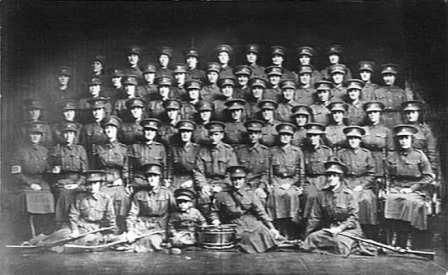
Commonwealth Clothing Factory Workers State Library of Victoria a04424
Woman Voter 21 March 1916: 'War is Women's Business -
Who faces death in order to give life to men?
WOMEN.
Who love and work to rear the sons who then are killed in battle?
WOMEN.
Who plant fields and harvest crops when all able-bodied men are called to war?
WOMEN?
Who keep shops and schools and work in factories while men are in the trenches? WOMEN
Who nurse the wounded, feed the sick, support the helpless, brave all danger?
WOMEN
Who see their homes destroyed by shell and fire, their little ones made destitute, their daughters outraged?
WOMEN
Who are sent adrift, alone, no food, no hope, no shelter for the unborn chile?
WOMEN
Who must suffer agony for every soldier killed?
WOMEN
Who dares to say that war is not their business? In the name of Justice and Civilisation give women a voice in Government and in the Councils that make or prevent war' Women & the Great War, Bruce Skates & Raelene Frances CUPAlison Alexander: 'Over the four years of the (first world) war, 400,000 men enlisted to fight in Europe and the Middle East, out of a population of under five million. The government arranged for about half their pay to go to their families ...' p 114 Alison Alexander A Wealth of Women Duffy & Snellgrove 2002
Megan McMurphy, Margot Oliver, Jeni Thornley: 'Right from the beginning of the war, images of women as helpless, dependent and in need of protection from 'the Hun' had been used to persuade men to enlist. Both sides of the conscription debate reinforced this derivative view of women's status, through their constant appeals to women as mothers, wives, sweethearts and sisters ...
The response of women to the war was mixed. Many of them lined the streets and cheerily waved the volunteers good-bye, and were soon active in persuading eligible men to recruit. Quite a few were anxious to serve in the armed forces themselves, though the only work the Australian army allowed them was nursing, the nurturant female role of mopping up the damage. The Nightingdale system of nursing had, after all, been developed on the battlefront, during the Crimean war of the 1850's.' p 64 For Love or Money a pictorial history of women and work in Australia Penguin 1981
2...WIDESPREAD SUPPORT: THE AUSTRALIAN WOMEN'S RED CROSS LEAGUE
Both peace supporters and the war supporters supported the individual soldiers, and organisations such as the Red Cross. This is an example of a peace supporter -
Marj Oke's grandmother, Elizabeth Tatnall (1873-1966), was part of the Women's Movement and a suffragist, attending meetings held by Vida Goldstein and (she) was taken to meetings of the Pankhursts when they visited Australia. In 1914 she joined the Labor Party "with its opposition to the 1914 war, and later took part in anti-conscription struggles. She was a strong believer that black and white women were equal and should have equal opportunity and respect ... ". Later still, after another war she "did her war effort" at Myers, in their kitchen and in the clothes-making and repair department. When she was 75 she went to live with Marj and "became a member of the Combined Pensioners' Association, the Red Cross, CWA, Civilian Widows, Senior Citizens and was a member of the building committee of club rooms for Senior Citizens. She marched for years at Eight-hour Days, May Days and peace rallies, even into her eighties ... She died at Kingston Centre at the age of 93. But even during during her stay at the Centre, she kept her interest in Labor, Aborigines and peace: an Aussie battler." Marj Oke Women We Know the forgotten history. The non-recorded lives women of today feel compelled to remember. Ed Jan Harper and Jenny Lee, Mary Owen Dinner Committee Melbourne 1988
And those who supported the war -
Judith Smart: 'Women whose lives were suddenly emptied of the men they had succoured felt the need for fulfilling activities for fulfilling activities that gave their traditional roles national significance - an importance transcending the intimacy of the family. ... Most branch members of the AWNL followed the flood tide into the Red Cross and devoted their not inconsiderable energies to fund-raising as well. By the end of the war they had raised twenty thousand one hundred and thirty pounds three and ninepence as well as one thousand pounds for the War Loans Bond. They had supplied many tons of food, tobacco and rugs for the YMCA's 'Kitchener Memorial Huts', and bought motor ambulances, contributed to the many relief funds, financed a ward in the Caulfield Military Hospital, and even purchased a piano for the nurses.' Marilyn Lake, Farley Kelly Double Time, Women in Victoria - 150 Years Penguin 1985
Red Cross kitchen helpers 1914 b16433 State Library of VicatoriaAlison Alexander: 'Hundreds of thousands of Australian women in these ways (such as "Cheer-Up" groups providing meals, entertainment and public farewells to the soldiers and later welcoming them back). A few aimed at a military role, but the authorities said war was not for women. (The Khaki Girls were accepted) but when they offered themselves for active service, the Defence Department refused. It did allow the formation of a Women's Auxiliary Army Corps, but members only helped with recruiting and caring for soldiers' children.'
'THE "KHAKI GIRLS" ... In 1917 two hundred girls in a Melbourne clothing factory (the Commonwealth Clothing Factory) agreed to spend one night making shirts and underclothes for the war effort. They went on to form the Khaki Girls, where squads of girls in khaki uniforms raised money by displays of drill and physical culture, and bugle music.' p 117 'The Red Cross organisation, which aimed to help victims of war, had already been established. As the war progressed, thousands of women joined. When the wounded started to return from Gallipoli, Red Cross became vital. Volunteers met ships, transferred soldiers to convalescent homes and nursed them, provided soldiers with meals and helped discharged servicemen. Overall, 82,000 were involved ... The army provided no comforts for soldiers, and in the bitter winter of 1916 troops in the trenches in France ran out of socks ... women provided 80,000 pairs. They continued to knit for the rest of the war, producing 1,354,324 pairs of socks alone.' p 115 Alison Alexander A Wealth of Women Duffy & Snellgrove 2002
'The Red Cross Society has made arrangements to provide Christmas presents for sick and wounded Australians, not only in France, England and Egypt, but also in Mesopotamia and India.' State Library of Victoria
4...FORMING A COLLECTIVE IDENTITY
In 'The Labour of Loss, Mourning, Memory and Wartime Bereavement in Australia', Joy Damousi describes how women bonded through loss of their loved ones: "Through letters of condolence we can see how there emerged a network of women immersed in an atmosphere of preparing for the possibility of further loss. ... the (death lists in newspapers) drew women together, forming a common identity ... Women spoke to each other through the fate of their men and forged a collective identity in their absence." p 21 The Labour of Loss Cambridge University Press 1999The Politics of Grief -
Joy Damousi: 'The letters, petitions and applications that widows wrote show how women came to see themselves as 'war widows'. These texts also reveal the way loss was tied to the development of a political identity. Widows united to resist what they perceived to be attempts to marginalize them. Although they carefully avoided criticism of soldiers' entitlements, war widows wanted economic independence and tried to articulate a notion of 'sacrifice' in their own terms.' p 78 The Labour of Loss Cambridge University Press 19
Richmond Studio postcard PA004737 1915 State Library of Victoria5...WOMEN'S ROLE
Megan McMurphy, Margot Oliver, Jeni Thornley: 'Military and government officials in charge of the conduct of the war were also clear in their views about women's 'appropriate' role in the war effort. Though war was held to be so vital to Australia that all able-bodied men were threatened with conscription, women who responded to the supposed national emergency by wanting to take on active military duties themselves were refused.' p 65 For Love or Money a pictorial history of women and work in Australia Penguin 1981
Women in Uniform pc0031931916 State Library of Victoria
These young women are in uniform, but why or what is not explained.The Woman Voter, 11 May 1915 p.3: "Numbers of Australian women doctors have offered themselves to the Defence Department for service at the front, but the Minister for Defence is informed by Imperial authorities that their services cannot be utilized." p.68 For Love or Money a pictorial history of women and work in Australia Penguin 1981
6...AUSTRALIAN ARMY NURSING SERVICE
The Woman Voter: 'Trained Nurses for Soldiers - At long last the military authorities have consented to employ trained women nurses at the various camps. It is deplorable that it should have taken so long to secure this very necessary reform, and that so many sick soldiers should have had their sufferings increased unnecessarily owing to the lack of that care and attention and sympathy that are so essential to the sick.' October 21 1915
Patsy Adam-Smith: 'In World War 1, 2,030 Australian nurses served abroad (with reinforcements bringing the number up to 3,000) in Egypt, Palestine, the Persian Gulf, England, France, Italy, Burma, India, Vladivostok, Abyssinia, and on hospital ships and transports.' p 19 'Everything here is unutterably sad and awful. Thousands coming in day and night. We are in the theatre from 7am till 8pm then work in the chapel attending to the new admissions till any hour in the morning.' p.51 Australian Women at War Penguin 1984
Sister Brown: '... I was alone in ward of 22 beds - all pneumonias, mostly mad, and had about 3 deaths in every 24 hours. I was there 3 weeks without relief for one hour. The depression which settled on one watching these men die in spite of all you did for them was awful ...' p.62 Guns and Brooches Australian Army Nursing from the Boer War to the Gulf War Jan Bassett Oxford 1997
Maree Gould: 'Her health was broken and she was returned to Australia and was discharged', said Maree Gould about Ellen Julia Gould 1860-1941:
- In 1884, "Nellie" (as she was called) visited relatives ... and began a two year training course.
- In 1891 she became matron and superintendent of the Sydney Hospital nurse training school.
- In 1899 she was asked to form an Army Nursing Service and was appointed superintendent, leaving a year later for the South African War with 13 nurses, served at a stationary hospital, and returned to Australia in
- 1901, after opening a private hospital, she spent the next ten years devoting her energy and initiative to the welfare of nurses and enhancement of their status. She also organised the Army Nursing Service Reserve in NSW.
- On 27 September 1914, Ella Gould enlisted in the Australian Imperial Force and was appointed matron of No 2 General Hospital. She was the first nurse from Australia to serve overseas, and with six other nurses she left Australia, disembarking at Alexandria, Egypt on 1 December. A few months later casualties from Gallipoli made necessary a second hospital at Ghezireh Palace. The two hospitals had a total of 1,500 beds.
- On June 30, 1916 she transferred to Wimereux, France, on the eve of the advance on the Somme.After a long period of arduous duty, Nellie Gould was posted first to England to No 1 Australian Auxiliary Hospital (Harefield), and later to an Australian convalescent hospital. Her health was broken and she was returned to Australia and was discharged. Her distinguished service was recognized by the award of the Royal Red Cross (1st class) in 1916.' Women We Know the forgotten history, the non-recorded lives women of today feel compelled to remember - to commemorate the 1988 Mary Owen Dinner ed Jan Harper and Jenny Lee, typed Gay Harris and Eva Eden pub Mary Owen Dinner Committee
"Victorian Red Cross Nurses Now on the Way to England" Sydney Mail July 19 1916 p 21Angela Booth: 'Salaries of Commonwealth Army nurses were cut during the war and when protest was made they were told 'If women wanted frills and furbelows' they must provide for them.
Nurses responded by protesting 'It is necessary for the Commonwealth to economize on its war cost, but it is not clear to women why nurses have been singled out ... The salaries of young unmarried medical officers have not been cut down, neither has it been suggested they spend their salaries frivolously ...' Mrs Angela James Booth, The Payment of Women's Work cited in For Love or Money a pictorial history of women and work in Australia Penguin 1981
Australian Casualty Clearing Station a04449 State Library of VictoriaSister A E Williams (nee Sister Cocking): 'Echoes of War Nursing Service in 1914-1918 War - Europe, Palestine, Egypt - 'On July 1915, I, with 239 Army Sisters I left Port Melbourne on the Transport ship "Orsova". Besides the AANS there were on board also 4 AMC Units, 1,000 Infantry for Egypt and the 1st and 2nd Siege Brigade Batteries, soldiers of our Permanent Army from Queenscliff, some of them had seen a little service on Thursday Island, they, after training service in England, did their war service in France.
"Military Etiquette, By Jove! / Tis a red tape net well wove, / From the Private to the Colonel / Orders want a time / Good morning to your Superiors, / Cold stare to your Inferiors, / That's correct, stand erect, / Military Etiquette.
If poison be taken for pill, / Do nothing for patient until / The Orderly finds your ward's MO / All over the ship he'll go, / Orders are given to Superiors, / Obeyed by their Inferiors / That's correct! Stand erect, / Military Etiquette.
Respect to OC's be paid, / When drilling on parade, / Stand erect and salute, / Don't look down at your boots, / Honour your Superiors, / Bully your inferiors, / That's correct - stand erect! / Military Etiquette.
Mind your p's and q's, Sir, / With "May I carry on, Sir" / Or you'll get a reprimand, / OC's always take command, / "Sir", all your Superiors, / Swear at your inferiors, / That's correct! Stand erect! / Military Etiquette."
When I remember how well and strong our boys were then - the fittest and best of Australia's manhood, how full of hope and cheer, not realising the horrors they were going to, I am sad, for I also remember how we brought them home again on the "Kanowna" - maimed, wounded, gassed, crippled for life, and some did not return - their graves are on foreign soil.' State Library of Victoria
There was no pension for returned nurses.
b53440 thegreatwar.jpg State Library of Victoria7...'STRANGE BEDFELLOWS' - FEMINISTS AND the AWNL
There were times when feminist and anti-feminist groups worked for the same cause -
Marilyn Lake: 'Nurses were ... eligible to take up land under soldier settlement provisions, a fact which Senator Millen was pleased to remind Eva Hughes of the Australian Women's National League (AWNL), who wrote criticizing the omission of nurses from repatriation provisions.' The Limits of Hope: soldier settlement in Victoria 1915-1938 Oxford University Press 1987The Argus September 23 1915 p9: 'Women's Labour Councils - Biennial Convention Opened - Domestic Subjects Discussed - A convention of women, representing the various Political Labour Councils, the State electorates and affiliated industrial unions ... was opened at Trades Hall yesterday. Forty delegates were present from different partions of the State. Miss Muriel Heagney was elected President and Mesdames Savage and Bella Lavender, Vice President.
Motions agreed to - Schools for mothers; Maternity hospitals; Affordable medical attendance at birth; Proper Trades Schools for girls; provisions at Working Men's Colleges and Technical Schools; No training of girls of 12 years and under in the domestic arts; dental clinics in schools.
Nationalization of Commodities -
"That the State Labour Members of Parliament be urged to use their utmost influence and power to abolish child slavery, which is rampant in the dairying districts of Victoria where a large number of young children have to milk a number of cows before and after school hours, the labour entailed being detrimental to their physical and mental development.
"Recognising that private enterprise has failed to provide the necessities of life, and as we are aware of the huge profits made out of the general public, as demonstrated by the Interstate Commission and the Price of Foods Board, this convention is strongly in favour of the national ownership and management of all commodities, and urges the various Governments to speedily pass bills bringing the same into force.
"That the conference advise that stricter supervision ber exercised over the religious teaching in the State Schools.
"That the law (on adulterated food) be amended; and, in view of the importance of a pure milk supply, persons convicted for a third time should be prohibited from all future trading.
"That an annual licence be issued to all engaged in the selling of foodstuffs, milk, etc, such licence be cancelled in the event of a second conviction of the Pure Food Act.
"That founding homes should be provided by the State in all large cities as a means of preventing child murder.
"Establishment of day and other clinics, the cost to be borne by the Government, similar to that established in NSW.
"Establishment of day and other clinics, the cost to be borne by the Government, similar to that established in NSW.
"That some action be taken that provision be made that women inspectors be appointed to enquire into conditions that children are boarded out to farmers, the rate of pay they receive, the hours they are expected to work, and the accommodation provided.
"That women be appointed on the Children's Court Bench, and on all committees controlling institutions where women and children housed.
"That this convention condemns the Peacock Government for failing to honour their election promises to protect the people from unscrupulous and unpatriotic traders, who have been allowed to raise prices of the necessities of life, thereby making large profits at the expense of the nation.
"That women magistrates, jurors and police be appointed.
"That juries be composed equally of both men and women.
"That in the interests of public health it is desirable that women sanitary health inspectors be appointed in every municipality.9...THE COST OF LIVING in the FIRST WORLD WAR
Cheryl Griffin: 'Between July 1914 and March 1916 the cost of living rose by 34.6%, wages were frozen and unemployment had risen by more than 6%, all brought about by Australia's involvement in the war. In 1914 the Public Service Journal estimated that the purchasing power of the sovereign is from 25% to 33% less than it was 10 years ago. The problems were compounded when income tax was introduced to help the war effort.' A Biography of Doris McRae 1893 - 1988 Phd University of Melbourne
10..COST OF LIVING DEMONSTRATIONS
Judith Smart: 'There was plenty of evidence of a general decline in standards among the people and near starvation in the case of significant few. Since the outbreak of war retail prices of food and groceries in Melbourne had risen 28.2% to June 1917 ... ' p 274 Gender at Work: Australian Women at War in the Twentieth Century Joy Damousi and Marilyn Lake CUP 1995
Emily Pankhurst: 'While men were dying like flies in Europe for Australia, their children, their wives and their old parents were being robbed by those who preferred that mice should eat good food rather than hungry humans should have it.' p 280 Gender at Work: Australian Women at War in the Twentieth Century Joy Damousi and Marilyn Lake CUP 1995
Argus July 2 1915: "Parliamentary Rebuff - Women Annoyed - A demonstration in force at the State Parliament House of members of the Women's Political Association was contemplated yesterday with respect to the high cost of living. About forty women arrived in the Exhibition Gardens shortly before half past 4 o'clock, in the expectation of meeting the Premier (Sir Alexander Peacock), and other members of the Legislative Assembly at the usual time of the adjournment on Thursdays. But the House rose earlier than as its custom, and, excepting for a few Labour members, there was no-one to receive the deputation. The women were greatly annoyed at their chilly reception ...
They were there to inform the Members of the great rise that has occurred in the price of foodstuffs and it was requested that the members should do what they could to relieve the situation, which was bearing hardly on the poorer sections of the community."Megan McMurphy, Margot Oliver, Jeni Thornley: '... Women's already low wages became even more impossible to live on as war-time prices introduced Australians to the joys of inflation for the first time. In Melbourne, Adela Pankhurst, Jeannie Baines, Alice Suter and other Socialist women organised demonstrations to protest the rising prices; the three were arrested and sentenced to nine months imprisonment for their pains, though they later appealed their sentences and won.' p 67 For Love or Money a pictorial history of women and work in Australia Penguin 1981
The Argus July 2 1915 p9: 'Persistent Deputation - Parliamentary Rebuff - Women Annoyed - A demonstration in force at the State Parliament House, of members of the Women's Political Association was contemplated yesterday. About 40 women arrived in the Exhibition Gardens shortly before half past 4 o'clock in the expectation of meeting the Premier (Sir Alexander Peacock) and other members of the Legislative Assembly at the usual time of the adjournment on Thursdays. But the House rose early and, excepting for a few Labour members, there was no-one to meet them. Though they thought that they might see Sir Alexander Peacock, he was under no obligation to meet them. They desired to ... show him certain commodities by which a comparison of the nature and price of goods of the present and prewar times could be made. They said the situation was bearing hardly on the poorer sections of the community.'
Argus August 3 1917: ' Women Socialists' Threats - Demonstration in City - A deputation consisting of six women members of the Socialists League waited on on the Lord Mayor (Lord David Hennessy) and asked that the free use of the Melbourne Town Hall be should be granted to the league to hold a public meeting of women to make a further protest against the existing cost of commodities. It was also desired that the Lord Mayor should give permission for the holding of processions and demonstrations in the city streets in opposition to the cost of living. In reply, Sir David Hennessy said that the granting of the free use of the Town Hall was in the hands of the Town Hall Committee and he suggested the deputation should forward their request to that body if it were considered that another meeting were necessary.
A woman member of the (Women's) Peace Army "Will you allow us to hold peace processions in the street, then?" The Lord Mayor "No. We will hold peace processions when we have crushed the Huns, and the Allies secure the victorious peace for which they are fighting." University of Melbourne
Judith Smart: 'This was the first of many similar demonstrations and meetings that took place regularly well into September. "The processions grew bigger and bigger every day", Pankhurst recalled some years later. "I tried to negotiate a peaceful settlement and wrote to the Prime Minister ... If he had ... explained why the government took no action to preserve the people's food there would have been no disorder. He did nothing". The women were led and organised by the Women's Peace League, a group formed specifically to raise support for the campaign to reduce the high cost of living". Feminists, Food and the Fair Price in Labour History No 48 1985-6
Argus August 16 1917: 'Disturbance on Parliament Steps - Stirring Up Disorder - Riot at Parliament House, the Authorities Defied - Miss Pankhurst arrested. "A disgraceful disturbance occurred at the Federal Parliament House (Spring Street) yesterday, as a result of which Miss Adela Pankhurst will appear in the police court today to answer a charge of obstruction. Miss Pankhurst had arranged to hold a demonstration at Parliament House, nominally as a protest against the high cost of living, but it was generally understood that the demonstration, if held, would have taken on an aspect much more intimately associated with the present strike. In anticipation of trouble, the Federal ministry had adopted a regulation on Tuesday evening, prohibiting the holding of any demonstration such as was proposed, within an area bounded by Exhibition St on the west, Lansdowne St on the east and Victoria Pde on the north.
In defiance of this regulation, however, Miss Pankhurst and a number of her followers assembled on the steps of Parliament House before 3 o'clock ... altogether more than 2,000 had assembled on the corner of Spring and Bourke Sts by 3 o'clock ... At the watch house Miss Pankhurst was charged with "having obstructed the carriageway in Bourke St after having been requested by members of the police force not to do so." ... With the departure of Miss Pankhurst the police had comparatively little difficulty in clearing the crowd off the Parliament House steps and from the vicinity of the House. The majority proceeded to the Treasury Gardens where they held a meeting, addressed by a number of speakers. Although this was in the prohibited area, the police made no effort to stop the meeting. Violent speeches were made against food exploiters, and it was urged that the women should attack the cool stores, and forcibly remove the meat which was now held there. A motion was moved, protesting against the War Precautions regulation which prohibits any demonstration in the vicinity of Parliament House.
This motion was agreed to with shrill cheers, and, as if to emphasise their defiance of the authorities, one of the speakers invited all those present to return to Parliament House, where a further meeting would be held on the steps. News of this decision, however, preceded the returning crowd, and when it reached Bourke St it found Parliament House completely surrounded by a cordon of police. It was "shepherded" on to the west footpath of Spring St, and, after jeering at the police for several minutes, it began to disperse, and gradually melted away."
'WE WANT CHEAPER FOOD' - Demonstration - August 22 1917- HANDS OFF THE PEOPLE'S FOOD!
Judith Smart: 'Throughout the last week of August, daily demonstrations of "the people's women" took place in the city. On 29 August, for example, five to six thousand unionists were addressed by the women's leaders outside Angliss's in the city before being dispersed by a mounted police charge. Tension was rising. The next day, Pankhurst, Baines and Suter were arrested during a major clash and, for the first time during the disturbances, charged under the War Precautions Act rather than with civil offences. Nine others, eight of them women, were also apprehended on lesser charges ... Undeterred, the Women's Peace League continued its protests ... Pankhurst claimed that " ... the high prices caused the recent demonstrations. Parliament will do nothing and it is left to ourselves. We have only one course open and that is to demonstrate. I am not afraid to fight even if it does come down to the destruction of property" ...
Pankhurst was charged under the amended Unlawful Associations Act that she "did encourage the injury of property". At Yarraville, she had addressed about two thousand men and women to raise funds for striking wharf labourers, those affected by the NSW strike, and for the young girls who had been locked out of confectionary factories because they refused to handle black sugar and because shortages had caused their employers to close down ...
The Argus responded that the girls should take up domestic work (see next chapter 'Unemployment") in preference to factory life and inferred that the girls' condition was a consequence of their own choice. This only added to the anger of the food demonstrators. Pankhurst's tirade at Yarraville against the profiteers, the "Hoarders of the people's food", was recorded in detail by police observers. Children would die from slow starvation and girls and women would be forced onto the streets, she argued.
"Look at the cost of living and ask yourself if these girls can live upon their wages, if they cannot, what in God's name are they to live on. We have done everything we can think of to persuade the government to take action and protect the people against the profiteers, everything we can think of, we have had deputations and pointed out to the government that they must improve the condition of affairs in regard to people's food, but there is absolutely no notice taken at all, they were determined to protect the profiteers, and not the people they do not care a bit about if only the profiteers make money." ... The Prime Minister announced in Parliament that he was seriously considering deportation, an idea he had mooted earlier in a letter to Keith Murdoch ... "Adela Pankhurst is making herself a damned nuisance and I really don't know what to do with the little devil", he wrote, "I hate punishing women but I fear I shall have to deport her." Feminists, Food and the Fair Price in Labour History No 48 1985-6
Australian Women's National League reaction to Rising prices and Shortages -
Judith Smart:'In the face of rising prices and shortages that could no longer be denied in 1917, these middle-class women who knew little of deprivation advocated further government retrenchment and helped to wage a full-scale 'Thrift Campaign' that caused the fall of the Peacock government in the state election at the end of the year. Mrs Hughes and her cohorts were loud in their approval when leaders of the working-class women who took to the streets in August and September to protest about the cost of basic foodstuffs were arrested. The AWNL annual conference resolved that the "ringleader", Adela Pankhurst, should be deported along with all who had sympathised with her and helped bring the streets of the city "under mob rule". p 186 Double Time Women in Victoria - 150 years Marilyn Lake Farley Kelly Penguin 1985Woman Voter November 18 1915: 'Mr Hughes (Prime Minister) "It is regretted that in the present state of the finances it is not possible to increase the old age and invalid pensions. As already stated by the late Prime Minister, the matter of the expansion and extension of the principle has only been delayed, by circumstances over which we have no control." Quite worthy of a pre-historic Conservative? It is not only Germany that regards a promise as a "scrap of paper". State Library of Victoria
12..ENEMIES OF EQUALITY The Australian Women's National League (AWNL)
Judith Smart:: 'Interviewed after the war had begun (from the AWNL, Mrs Hughes) held the view that women might inspire their men folk and keep up their courage, but the means lay in cooking, nursing the wounded and "providing necessities in an organised manner such as will bring ease and comfort to the men", not in learning rifle shooting. The only military activity in which women should be encouraged was signalling, suitable because it was "exceedingly simple, demanding very little exertion". Marilyn Lake, Farley Kelly Double Time, Women in Victoria - 150 Years Penguin 1985
The AWNL asked women to study politics, however, but it was not for their own sake. It was to combat what they saw as socialism.
AWNL: 'At a meeting of the Australian Women's National League Mrs K Barry spoke of the task that faces women in the future. There was a very serious responsibility, said Mrs Barry, resting on the women of Australia ... More and more had the women of this country got to study politics. There were problems arising out of the war which women would have to settle. After the war there would be thousands more women than men in Australia and, therefore, this country was going to be made or marred by women. There were some things they had got to set their faces against, things they had got to cast out. One of these things was socialism. Under the excuse of war precautions socialism was now being extended.
She believed that the members of the Federal Ministry would have reached a proper standard of patriotism had they been free men. These men made fervent recruiting speeches but when they came before their masters at Trades Hall they were told to eat their words. Surely it was worth fighting against such a system. It was a system into which corruption could creep. She wanted women to be true to themselves, and they would then be true to their country. If they did that the future of the country would be safe. (Applause)' The Argus July 12 1916 p6 The Woman's Task "Must Studay Politics"
Lyla Barnard: 'Unemployment of women in Melbourne was a problem throughout the war years. Their frustration, anger and despair were manifest in demonstrations such as the following:
The Argus 3 August 1917 p 8: 'Raid on Parliament by Unemployed Women - 'Extraordinary scenes were witnessed at Federal Parliament House yesterday, when a number of women, headed by Miss Adela Pankhurst, attempted to storm the House and demand work ... (about one hundred women rushed into the House shouting 'We want work. Adjourn the House'. Police cleared them out. It is understood that a number of the women present had been dismissed from the ammunition works recently ...' from p 270 Double Time Women in Victoria - 150 years Marilyn Lake Farley Kelly Penguin 1985
The Woman Voter 3 June 1915: 'The procession created a sensation, as this was the first time in history women had made any sort of political demonstration in defence of their own rights. Then the speakers, unemployed women, spoke of their situation: "Dear Sir, we are here because we want work, not charity. My father wouldn't let me learn a trade or go in for any profession, because, he said, the home is the women's place, but I lost my home because the landlord doubled the rent ... For those of us who have no other source of income, two days work is not enough ... " p 70 For Love or Money a pictorial history of women and work in Australia Penguin 1981:
14..WOMEN'S POLITICAL ASSOCIATION (WPA) WOMEN'S LABOUR BUREAU
Yvonne Smith: 'The Women's Peace Army (WPA) Labour Bureau worked to find employment for women. This was an early attempt at self help for women as opposed to charity.' Taking Time Women's Time pub: Union of Australian Women
Woman Voter: 'Distress in Melbourne - A Scheme to Help Unemployed Women ...
We want to take some practical steps. Charity is useless and harmful. The WPA, therefore, will attempt to organise the women workers in industries from which they themselves will draw the sole profit. For this purpose we are asking for:-
1. The names and addresses of all unemployed women.
2. The names and addresses of wives of unemployed men.
3. Suggestions from members and friends with regard to work that might be carried out by women on a co-operative basis.
We call the earnest attention of our readers to this project, for it is of the utmost importance to the movement and the State.' December 15 1914 State Library of VictoriaThe Herald February 18 1915: 'WOMEN SEEKING WORK Housewives enquire - Apprised by a statement from Miss Vida Goldstein of the Women's Political Association appearing in these columns yesterday, that the services of charwomen could be obtained through the association's employment bureau, several housewives made application today, and were supplied with the help needed. Miss Goldstein is of the opinion that if housewives will make an practice of applying to the association in this way, many distressed women will be able to earn enough money to keep the wolf from the door. Even if a housewife needs a woman for an hour only, she need not hesitate to apply. Another housewife in the same street on the same day may ... Arlington Chambers, 229 Collins St., Melbourne Central 8013
Woman Voter December 9 1915: 'Last week the urgent need for clothing amongst unemployed women was forced upon our attention, and we ask our friends to remember our Bureau at Christmas time. If they would send us a few yards of calico and other cotton materials suitable for summer wear, they would be giving the woman a Christmas box that would be the greatest boom. Or send us money, so that we may purchase the material.' State Library of Victoria
The Herald February 18 1915 front page: 'A room at the Women's Political Association has been set apart as a storeroom, and the floor yesterday was soon covered with parcels ... The Association is particularly anxious to obtain children's clothes, as many of the families in distress consist mainly of young children ... Miss Adela Pankhurst, organising secretary of the Association expressed appresiation of the public's generosity. "We could do with the room full to the ceiling for the winter" she declared.
Patricia Gowland: 'Women were most affected by unemployment and poverty, and the WPA set up a Women's Employment Bureau and a Women's Farm ... The government granted 45 pounds per week to the bureau, until July 1916 when the pacifism of the Women's Political Association became intolerable in the atmosphere of wartime hysteria. The bureau was forced to close and its activities taken over by the establishment-endorsed "Ladies Benevolent Society." Patricia Gowland from Women, Class and History ed. Elizabeth Windschuttle, Fontana 1980
(The Ladies Benevolent Society still existed when Edith Morgan was working as the first social worker at Collingwood Council)-
Edith Morgan: 'By the time I came to Collingwood Council it - Singleton's Health Clinic - was run by the Ladies' Benevolent Society and I saw some horrific things happening. There was a man who was sent home without treatment. He was found sitting at home, dead, a week or so later. The gangrene in his leg was so bad he hadn't been able to leave the chair since he crawled back from Singleton's.' p 17 Women's Web - Women's Stories, Women's Actions UAW 2002 www.womensweb.com.au15..THE WOMEN'S RURAL CO-OPERATIVE
Woman Voter: 'Out of the work undertaken by the Women's Political Association there has developed a movement to place some of the women on the land ...' 9 March 1915
Woman Voter: 'A farm of 14 acres has been taken at Mordialloc ... already some thousands of bulbs have been planted; a well is being sunk and a windmill erected ... Six young women will be in training under the capable direction of Cecilia John and Ina Higgins. The former is a poultry expert, and besides, 'as good as a man' she can drive a car, paint a house, erect poultry sheds ... Miss Higgins is a trained and certified flower and fruit expert ... the trainees have no fees to pay; they give their work, receive a home ...' p 70 13 April 1915
Yvonne Smith: 'Involved in the establishment of a Women's Farm, the Women's Rural Industries Co. at Mordialloc was formed to help train unemployed women. Initially they received Government help, but they were vigorously opposed by the media and conservative women's organisations.' Taking Time Women's Time pub: Union of Australian Women
The Women's Political Association held a meeting on unemployed women's situation on 22 February 1915 -
Argus: 'Women's Political Association - At a meeting of the Women's Political Association held last evening at 229 Collins Street the question of unemployment was discussed. Miss Vida Goldstein presided. The need for immediate organisation of the forces endeavouring to find work for the unemployed, and to give relief in cases of great distress was emphasised, and the following concrete proposals were agreed to:
1. That the Commonwealth and State Governments be asked to co-operate in meeting the problem of unemployment.
2. That a control board of men and women be appointed by the Governments to organise all those seeking to alleviate the conditions of the unemployed.
3. That a policy of decentralisation be entered upon.
5. That the work should be financed by a graduated tax, starting at 5% on incomes of and over three hundred pounds per annum.
6. That facilities be provided for training women to domestic science, farming etc.' 23 Feb 1915Not everyone was sympathetic to the situation of unemployed women. ... The Victorian Association of Benevolent Societies seemed to think this was a good opportunity to find cheap servants. The following appeared in The Argus February 22 1915:
'To the Editor, Sir, The question of finding work fork for women is receiving much thought at the present time. It were wise that women would realize that we are at war, and, like men, play their part. We know that many opportunities are offering in the domestic sphere. ... At this time, all honest work is work done for the country. ... I suggest they (unemployed women) register with the Ladies Benevolent Society ...
When peace comes, I think we shall find ourselves little the worse for wear for our experience in manual work, though we may not have been able to command the same return. We shall feel all the better, realising that we have assisted our country by solving a problem which women alone are able to do. Let us accept this as our part in the national burden. Find all the work possible, and let the unemployed accept it in the spirit in which it is found, even if it be less remunerative, and not as congenial as that to which they are accustomed. Yours etc Jessie I Henderson, President, Victorian Association of Ladies Benevolent Society, 89 Harcourt Street, Hawthorn.'
Women's Political Association responded to this, and others, in this letter to The Age quoted in the -
Woman Voter, 23 February p.3: 'Sir, your plea on behalf of unemployed women will, we hope, result in something practical being done immediately. We have urged at the outset that the employment problem intensified by was should be dealt with by a central board ... subsidised by the Commonwealth and State governments ... It is futile to think that the unemployment problem as it affects women will be solved by offering them domestic service. The majority who are suffering most severely are widows, or deserted wives with young children dependent on them, or married women whose husbands are out of work or unmarried women who have not the physical stamina necessary for domestic service ... If employers will take women with one or two young children, we can supply any number of them from our Women's Bureau. The women want work, not charity.' p.69 from For Love or Money a pictorial history of women and work in Australia Penguin 1981Supporting the Wharf Labourers strikers and their families -
Woman Voter: 'During the wharf labourers' strike the Women's Political Association established a commune, supported by donations, to help the strikers' families. Kitchens, a restaurant, bootshops, barbers, grocers and baker shops were established by voluntary help. Boots were mended and hair cut free. Over 1,500 meals were supplied and 5,000 people were given groceries.' No 268 4/10/17 and 273 18/11/1Leaflet: 'WE WAR AGAINST WAR! Melbourne January 20 1916
Great Peace and Free Speech Demonstration
Yarra Bank, Sunday afternoon January 30th
3 Platforms, Many Speakers, Upwards of 20 Organisations Co-operating.'Woman Voter: 'Sing a song of Europe, highly civilised; / Four and twenty nations, / wholly hypnotised. / When the battles open, / The bullets start to sing; / Isn't that a silly way / To act, for any King?
The Kings are in the background, / Issuing commands, / The Queens are in the parlour, / Per etiquette's demands, / The bankers in the counting-house / Are busy multiplying, / The common people at the front are doing all the dying.' September 3 1915'Women Wage Earners' Conditions -
Argus October 9 1917: Speaking at the meeting of women at the Cathedral Hall on Sunday, Dr Mary Glowrey said that the conditions in many of the factories constituted a serious menace to health, and that many factories were insufficiently ventilated. Officials of the Labour Department stated yesterday that before factories were registered, regulations which provided for sufficient ventilation had to be complied with. In order to ensure compliance with the regulations at all times these factories were regularly inspected, and they could be condemned if not properly ventilated. It was possible that some factories, which had not been registered, were being used, but if there were any, the department would soon become aware of the fact, and see that the requirements of the law were observed.' October 9 1917 State Library of Victoria18..THE COMMONWEALTH CLOTHING FACTORY
Jan Bassett: '... For many people, especially women, the war years were ones of financial hardship. Real Wages fell. Almost all the employees of the Commonwealth Clothing Factory were women and girls, and their wages were much lower than those of men and boys in comparable jobs. The Commonwealth Employment Factory opened in 1911, its purpose being to provide clothing and uniforms for federal departments. During World War 1 it made uniforms for Australian troops. For the first few weeks of the war its employees worked from 8am to 10;pm ... then from 8am to 5.30pm ... Later in the war employees worked on Saturday morning as well ... A study of employment figures of this and other war-related factories supports the argument that women provided a reserve labour force that was exploited in times of necessity, such as war, and abandoned in others.' p 269 Double Time ed Marilyn Lake Farley Kelly Penguin 1985
Commonwealth Clothing Factory Sth Melb AWM DAX229419..THE GOVERNMENT WOMEN'S FEDERATION OF AUSTRALIA
Suzanne Fabian and Morag Loh: 'Women fought back by forming their own union, the Government Women's Federation of Australia. This was registered in NSW but knocked out of existence by the Commonwealth Public Service Commissioner, who challenged its registration on the grounds that there were already other unions the women could join. Women's already low wages became even more impossible to live on as war-time price rises introduced Australians to the joys of inflation for the first time. In Melbourne, Adela Pankhurst, Jeannie Baines, Alice Suter and other Socialist women demonstrated to protest the rising prices; the three were arrested and sentenced to nine months imprisonment for their pains, though they later appealed their sentences and won.' p 66 The Changemakers Suzanne Fabian and Morag Loh Jacarandah Press 1983
Typists Defence Dept. Base Records Dept Australian War Memorial H02334Megan McMurphy, Margot Oliver, Jeni Thornley: 'In 1914 the Victorian Lady Teachers' Association applied for equal pay, only to be told in detail why their work was not equal to that of male teachers, and that the cost of living was less for women, anyway! ... One area of employment women did enter in increasing numbers was office work. They became clerks, secretaries, 'type-writers' bookeepers and accountants, frequently filling places left by enlisted men. Women had already worked in office jobs before the war, so their presence in offices was apparently not regarded as a problem. There was, however, the question of their rates of pay ... The Clerk's Union 1916 application for equal pay was rejected ...
In 1916 the equal pay provision won in 1902 through the work of Louisa Dunkley, Vida Goldstein and others, was broken down. In an Arbitration Court ruling that was apparently unexpected by either the employer or the union, Judge Powers decided to set lower rates of pay for women in the clerical division of the Public Service ... In 1918 separate wage claims for female and male telephonists were presented for the first time, and the Government decided to refuse women any entry into the clerical division at all. The 'problem' was to be solved in the fashion long since discovered in industry: the increasing differentiation of jobs into 'male' and 'female', with different rates of pay.' For Love or Money a pictorial history of women and work in Australia Penguin 1981
In 1919 women's rate of pay was set at 54% of men's earrings.
21..MURIEL HEAGNEYSuzane Fabian and Morag Loh: '... Only a year after the first Victorian Labo(u)r Women's Conference was held, Muriel (Heagney) was elected to its central organising committee ... The next year war was declared and the Heagney family was deeply affected. Muriel's elder brother volunteered for the army in 1914 and was killed at Gallipoli a year later.
In 1916 Muriel got a job as a clerk at the Defence Department in Melbourne and for three and a half years worked closely with returned soldiers. She was moved by stories of personal tragedy that were never recorded in official war histories. She became an anti-war activist. She spoke publicly in the anti-conscription campaigns of 1916 and 1917 and, with her mother, joined street demonstrations against the war ... The Intelligence section of the Defence Department reported her 'subversive activities' to her superiors in order to have them stopped, but Muriel insisted on her rights as a citizen to engage in political activities. She refused to be intimidated and, despite Defence Department disapproval, continued her political activism throughout the war ... Muriel was paid the full male rate of the Defence Department. Because women hadn't worked there before, the regulations made no allowance for a lower rate of pay for women. She kept this precedent before her in her life-long struggle to have wages determined by the rate for the job, not the sex of the worker.' p 116-117 The Changemakers Suzanne Fabian and Morag Loh Jacarandah Press 1983
Argus: 'Women and the Law: Admission to the Bar Refused -
The Bar Council has defeated by an overwhelming majority a resolution proposing the admission of women to practice at the Bar. The Attorney General (Sir F E Smith) and others argued that it was unfair to consider the question while 1,800 barristers were on active service.' January 20 1917
Muriel Heagney 1885 - 1974 State Library of VictoriaIn the next chapter we look at women's activism for peace and social justice in the post-war world.
